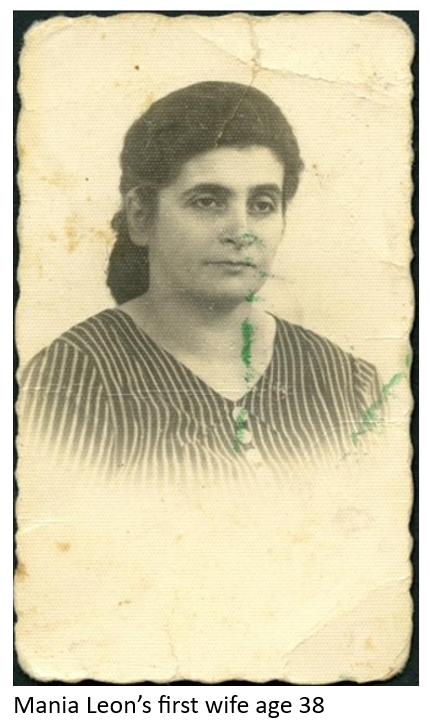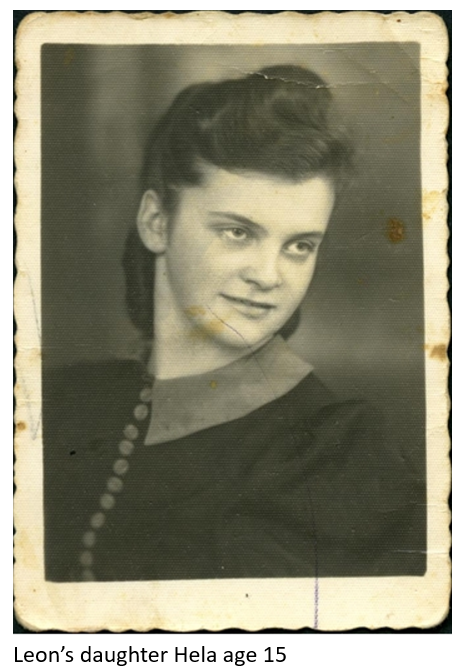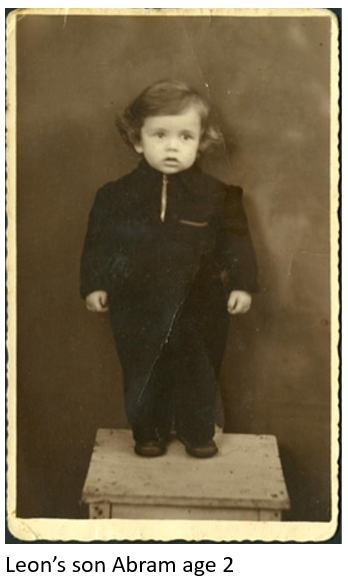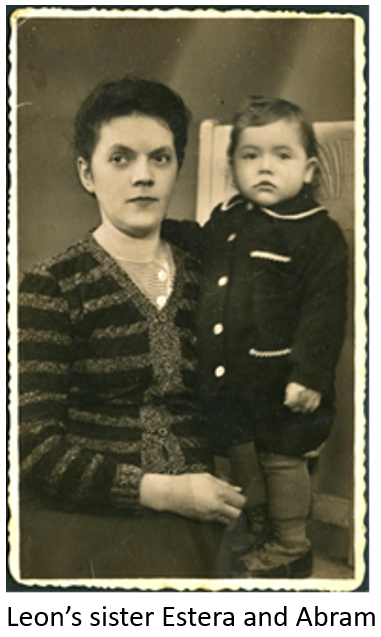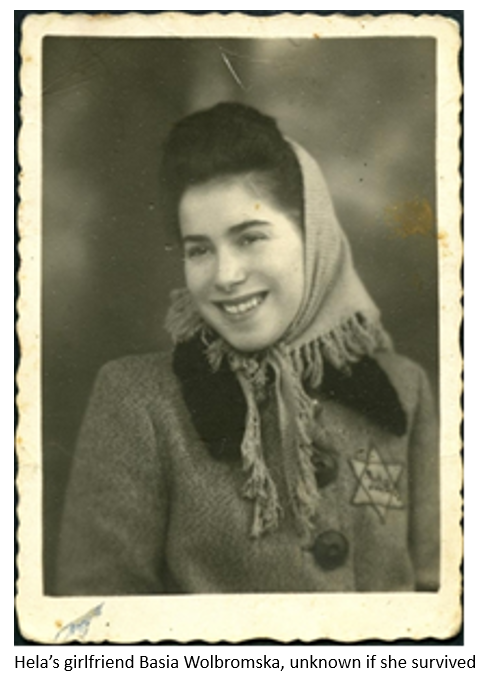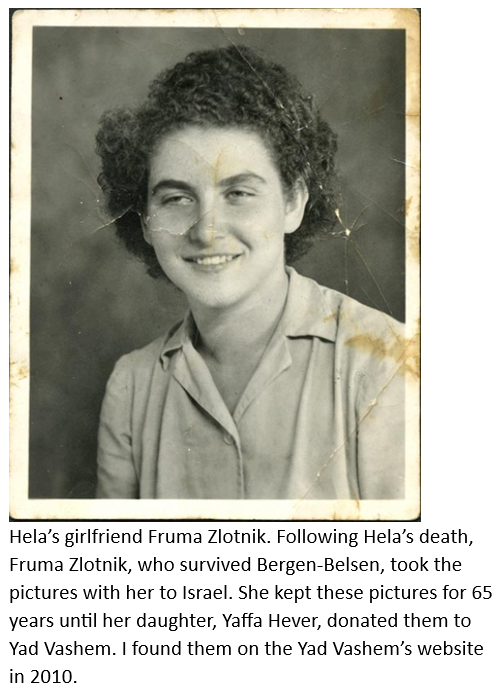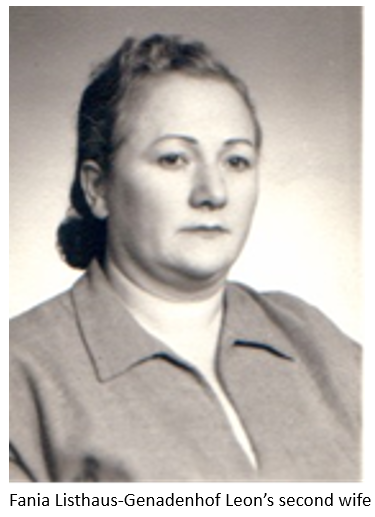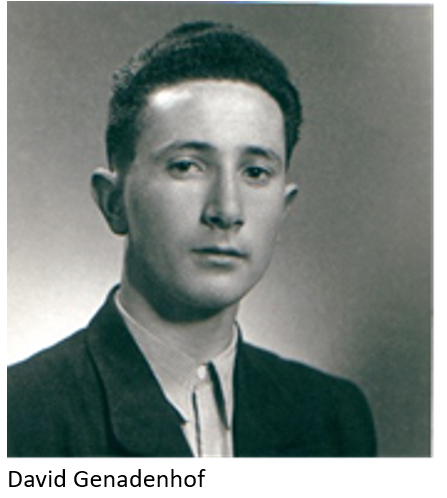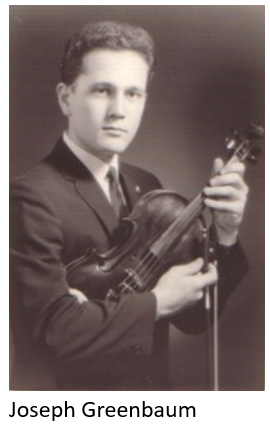Leon Greenbaum
"Find a profession that you can be passionate about and never give up on your dream. Treat everyone with respect and kindness. Be willing to extend a hand to those who are not as fortunate as you."
Name at birth
Lajb Grynbaum
Date of birth
08/09/1904
Where were you born?
Where did you grow up?
Zawiercie, Poland
Name of father, occupation
Josek,
Tailor, actor/impresario
Maiden name of mother, occupation
Chaja Sura Lewkowicz,
Homemaker
Immediate family (names, birth order)
Jachet (born 1899), Sura (1901), Ester (unknown), Lajb (1904), Chaim (1911)
How many in entire extended family?
Unkown
Who survived the Holocaust?
Leon and Henry (Chaim)
I was born in the Polish town of Zawiercie to a tailor Josek Grynbaum and a homemaker Chaja Sura Lewkowicz. In a town of approximately 20,000 people, ¼ of the population of the town was Jewish. I had three sisters who were older than me and a younger brother. All of us children played an instrument. I played the violin and my brother played the drums. When I was 9 years old, our mother died. By the time I was 12, I was working in a steel mill in Leipzig, Germany as an apprentice. That didn’t last long, because the mill was dirty, hot and the work was exhausting. I returned to Zawiercie and learned to become a tailor from my father. Not only was my father a good tailor, but he was also a budding actor. Whenever, a Jewish troupe of actors came to town, like Ruchla Kaminska (Ida Kaminska’s mother), he would gather up actors and musicians for the performance. And if a role could not be filled, he would play it himself. The performances were presented at the only synagogue in Zawiercie on 43 Marszalkowska Street, which was built in 1880 and is still standing to this day. Years later when Ida Kaminska came to Detroit for a performance, I went back stage and introduce my family to this great Yiddish stage actress.
In 1923, at the age of 19, I married Miriam Moszkowicz and three years later our daughter, Hela was born. The following year, we moved 17 miles away to a new town in the Zaglebie region, called Dabrowa Gornicza. We lived there, at 45 Narutowicza Street, until 1939, when Nazi Germany invaded Poland and World War II began. The following year, in 1940, our son, Abram was born. The Germans confiscated my tailor shop and even though I had permission to work in my own shop, they made me hire German nationals – Volksdeutscher, who effectively ran my business and collected all the revenue. In November 1941, my daughter, Hela, at the age of 15, was deported to Gruenberg, a women’s labor camp (The photos displayed were included in a package of food sent by Leon and Mania on January 25, 1942, to Hela when she was in the Gruenberg (Zielona Gora, Poland) Nazi labor camp for women.)
In March 1942, I was deported to Sakrau, one of 8 camps I would eventually be assigned to before I was liberated from Mauthausen in May 1945. Following my liberation, I returned to Dabrowa Gornicza, only to find, that my daughter died of typhus in Bergen-Belsen, my wife and son were murdered in the gas-chambers of Auschwitz-Birkenau. A partial account of my 3 years in the hell on earth that the German Nazi regime created during that heinous period in human history, can be read in my deposition, which I gave to N. E. Szterfinkiel on May 4, 1947 in Dabrowa Gornicza. In addition to my immediate family, I lost my sisters, Jachet, Estera, Sura and their families. My younger brother, Henry, survived a death march and was rescued by his future wife Elizabeth in the German town of Vilsbiburg, Germany. In 1950 they immigrated to Flint, Michigan
I met my 2nd wife, Fania Listhaus-Genadenhof, who was repatriated from Russia, in Duszniki Zdroj, Poland in 1946, while I was on vacation. Our son Joseph, was born in 1948 in Dabrowa Gornicza. Life for Polish Jews in Poland in the ‘50’s had its challenges. While Stalin was alive, Jews were “protected,” I made a good living, because people needed cloths and the economy was booming. But, when Stalin died in 1953 and Polish communist came to power in the mid-50’s, things changed dramatically. Antisemitism was on the rise and communists were collectivising all private enterprises – like mine. As things got worse, I decided to take up my brother Henry’s invitation and applied to the US Embassy for permission to immigrate to the United States. We lived in Dabrowa Gornicza, until 1959, when I immigrated to Flint, Michigan and stayed with my brother Henry and his family.
My first year in Flint was difficult, because the country was going through a recession and it was impossible for a tailor to find a job, especially one who couldn’t speak English. I traveled by bus, seeking work, to Chicago, Illinois and Scranton Pennsylvania, where some of my friends, also survivors, had their own business. Someone wrote me a note stating that I couldn’t speak English and I need help making a phone call once I reached the city of my destination. I used that as my passport. I returned to Flint without any prospects. That winter was a very difficult one, financially and emotionally. I did some small jobs for people in the community and had to trudge through the snow to deliver the finished product. I cursed the day I made the decision to come to the land of milk and honey. The following summer I got a job at Roberts David Allan, a men’s clothing store in downtown Flint. When my wife and son arrived on December 20, 1960, I rented one half of a duplex from the Failer family, which was within walking distance of downtown. I retired in 1974 and moved to Northgate Apartments in Oak Park, Michigan.
Name of Ghetto(s)
Name of Concentration / Labor Camp(s)
Where did you go after being liberated?
Dabrowa Gornicza, Poland
When did you come to the United States?
July 1959
Where did you settle?
Flint, Michigan
How is it that you came to Michigan?
My brother Henry immigrated from Vilsbiburg Germany in 1950.
Occupation after the war
Tailor
When and where were you married?
1st wife – Miriam (Mania) Moszkowicz from Pinczow, Poland 2nd wife – Fania Listhaus-Genadenhof from Warsaw, Poland
Spouse
Miriam (Mania) Moszkowicz; Fania Listhaus-Genadenhof
Children
1st marriage – Hela, Abram 2nd marriage – Joseph Greenbaum, Dawid Genadenhof
Grandchildren
Joseph: Michael Lev and David Adam David: Danuta Genadenhof
What do you think helped you to survive?
Kind Germans. First, being a tailor gave me the opportunity to barter my skills for extra bread or soup or cigarettes, that I could trade for food and second, I had a will to survive.
What message would you like to leave for future generations?
Find a profession that you can be passionate about and never give up on your dream. Treat everyone with respect and kindness. Be willing to extend a hand to those who are not as fortunate as you.
Interviewer:
Biography given by Joseph J. Greenbaum, son of Leon Greenbaum
Interview date:
06/15/2011
Experiences
Survivor's map

